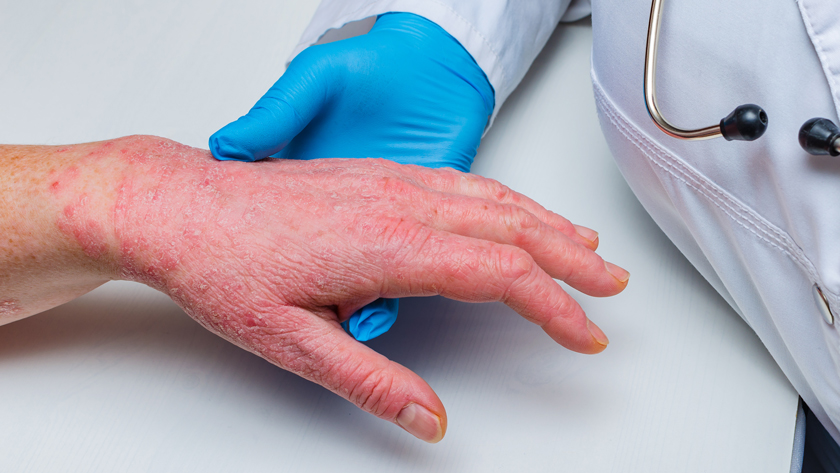Janssen celebrates positive results for JNJ-2113 in psoriasis trial

Janssen, a Johnson & Johnson company, has announced positive topline results from its Phase 2b FRONTIER 1 trial evaluating JNJ-2113, a novel first-and-only oral interleukin-23 receptor antagonist peptide, in adults with moderate-to-severe plaque psoriasis.
JNJ-2113 is an oral IL-23R antagonist peptide that binds to the IL-23 receptor. The IL-23/IL-23R signalling pathway plays a vital role in the pathogenesis of plaque psoriasis and other immune-mediated inflammatory diseases. JNJ-2113 selectively inhibits IL-23 signalling and downstream inflammatory cytokine production, making it a promising therapeutic option for patients with plaque psoriasis.
"The development of a novel oral therapy that specifically targets IL-23R could potentially change the treatment paradigm for patients living with moderate-to-severe plaque psoriasis," said Dr Lloyd Miller, vice president and immunodermatology disease area stronghold leader at Janssen Research & Development. "Until now, advanced psoriasis treatments have been largely limited to injectable biologics. An oral therapy that can uniquely inhibit the IL-23 pathway by directly targeting the IL-23 receptor could help address the needs and preferences of patients, and may offer greater freedom, with the aim of driving greater adoption of advanced treatment."
Plaque psoriasis is an immune-mediated disease estimated to affect more than 125 million people worldwide. The condition creates an overproduction of skin cells, resulting in inflamed, scaly plaques that may be itchy or painful, which can have a broader impact on a patient's life, including their emotional health and relationships.
In the randomised, double-blind, placebo-controlled trial, researchers evaluated the efficacy and safety of JNJ-2113 in patients who had previously failed at least one systemic therapy.
Results unveiled by Janssen show that the trial met its primary endpoint of demonstrating that a greater percentage of patients treated with JNJ-2113 achieved significant improvement in their skin condition – as measured by the Psoriasis Area and Severity Index (PASI) – compared to the placebo group at week 16. For the primary endpoint, 37.2% to 78.6% of patients receiving different dosages (25mg daily and 100mg twice daily, respectively) of JNJ-2113 achieved PASI 75. In comparison, only 9.3% of those in the placebo group achieved the same result.
Furthermore, JNJ-2113 also achieved its secondary efficacy endpoints. For PASI 90, the percentage of patients reaching this milestone ranged from 25.6% (25mg daily dose) to 59.5% (100mg twice-daily dose) in the JNJ-2113 groups, compared to just 2.3% seen in the placebo group. Moreover, JNJ-2113 groups showed significant improvement in PASI 100 compared to placebo, with results ranging from 9.8% to 40.5%, while the placebo group showed no such improvements.
Building on the FRONTIER 1 clinical trial findings, Janssen plans to advance JNJ-2113 into Phase 3 development for moderate-to-severe plaque psoriasis and initiate a Phase 2b clinical trial for adults living with ulcerative colitis.













